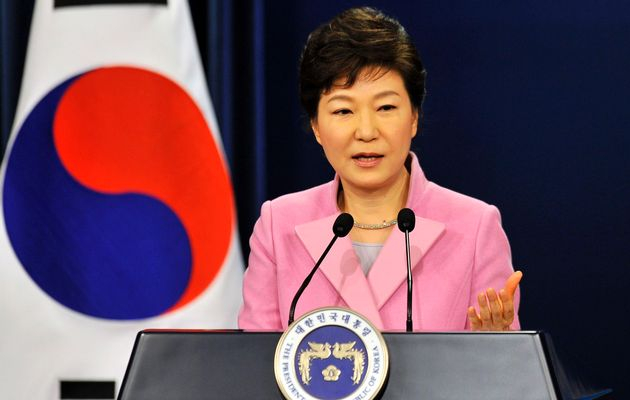
A South Korean court has ordered the arrest of former President Park Geun-hye after prosecutors sought to detain her on suspicion of bribery and abuse of powers.
The Seoul Central District Court granted the warrant following a hearing on Thursday, it said in a text message. The court also said that the arrest warrant was approved because of concern that Park could destroy evidence.
Read more:
Allegations against Park Geun-hye
Why South Koreans celebrated impeachment of Park Geun-hye
The former president was scheduled to be transported shortly to a Seoul detention center where Samsung's Jay Y. Lee and Park's long-time friend Choi Soon-sil are being held.
The court said in a text message that there was "reason and necessity" to arrest Park. "Major allegations were explained and proved and there were concerns over evidence destruction," the court said.
Her detention is the latest milestone in a corruption scandal that has gripped the nation for months, leading to her ouster and raising questions over connections between the government and large conglomerates in Asia's fourth-largest economy. Park, 65, has denied wrongdoing.
Prosecutors will have as many as 19 days to consider whether to indict the former leader, who is suspected of pressuring top business executives to donate tens of millions of dollars to foundations run by her friend Choi Soon-sil in return for government favors.
Government attorneys requested the arrest warrant on Monday, citing the gravity of Park's alleged crimes and the risk that she could destroy evidence. Prosecutors questioned her for 14 hours on March 21, after her ouster earlier in the month took away her immunity from prosecution.
Read about Korea's struggle to root out graft from its political system
Among the allegations, prosecutors say Park leaked state secrets and colluded with Choi to seek bribes from Samsung Group's heir apparent Jay Y. Lee in return for business favors. Choi and Lee are in detention as their trials proceed, and both deny wrongdoing.
It's unclear how Park's arrest may affect voter sentiment before an election to replace her on May 9. Left-leaning candidates including Moon Jae-in - Park's main opponent when she won office in 2012 - are leading in polls.
Koreans have seen their leaders sent to prison before. In the 1990s, Chun Doo-hwan was sentenced to death and Roh Tae-woo received a 22 1/2-year term after the pair were found guilty of creating slush funds and inciting a coup. Both were later pardoned.












